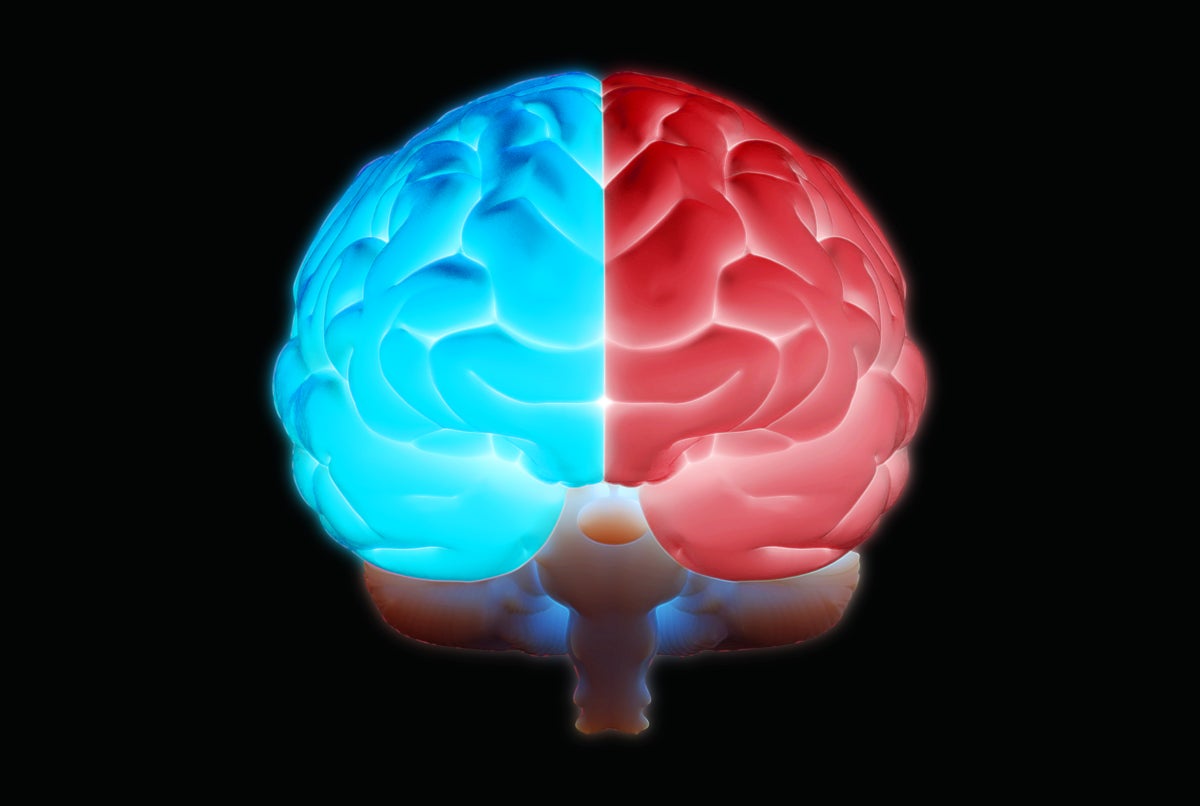Who on earth told you that racism is the same thing as in group bias.
Not 1:1, but absolutely related, and it develops early on. Babies will generally develop a preference for people who look like them at 6 months of age.
Because You have fallen for some propaganda here. Racial biases are absolutely not in-group biases. In fact, they can explicitly run counter to in-group biases.
How can racial biases not in-group biases? I can imagine them running counter to other in-group biases (e.g. in the US, you might be racist against people who look like you, but also have a bias for people of the same nationality, so your racial bias is coming up against your national bias), but to say that racial biases aren't based on an in-group is absurd.
This idea that racism, and by extension all forms of prejudice, are just based on natural preferences towards those who are similar to us is intentionally blind to the actual reality of racism. Racism is not just a series of in groups of equal power not liking each other because of inherent in group bias. Racism is the remnants of a historical, hierarchical system of thought based on white supremacy and enforced across multiple societies around the world through education, laws and violence. The legacy of racism includes colonialism and a long history of material inequality which persists to this day.
It is not even remotely comparable to people simply disliking people who are different, even if that were a general historical truth (which, incidentally, it is not).
If you're not able to face the reality of racism actually is, then you don't really belong in this discussion.
Y'know, I've seen this argument before. It really doesn't hold up to historical scrutiny. But to deal with it:
-Of course not all forms of prejudice are racism. Sexism, homophobia, etc. "Prejudice" can cover any number of, well, prejudices.
-You mention "racism is not just a series of in groups of equal power not liking each other because of inherent in group bias." Basically, R=P+P. I'm not entirely adverse to that argument, but absolutely two groups of equal power can be racist to each other, in principle.
-To claim that "racism is a symptom of white supremacy" would mean that apparently white supremacy went back in time and got everyone to be racist. Even if we restrict racism to simply a power game, then that still doesn't hold up. You'd have to explain the racism of the ancient world, with Greeks regarding others as barbarians. You'd have to explain why the same attitude in China goes at least as far back as the 1st century BCE. You'd have to explain why, staying in China for a bit, why interracial marriages were banned in the 9th century by Lu Chun. You'd have to explain why the Mongols enforced a caste system, which started to fall apart when intermarriage made it impossible to enforce (incidentally, I have two Chinese colleagues at work who can recognise each other for having Han ethnicity and Han-Mongol ethnicity simply by looking at each other - differences I wouldn't be able to pick up by myself)
If you think I'm singling out China, then let's go west again, with the Arabs. The Arabs absolutely were racist against Africans and the Nordics, even if the latter wasn't too much of a power relation, though there was a strain of thought in what's now modern day Turkey that different ethnic groups had different inherent traits that led to them being suited for specific tasks (e.g. Africans were believed to be inherently strong, Slavs were believed to make better sex slaves, etc.) It's actually been argued (though I'm not convinced) that racism in the Arab world is the source of racism in Europe, at least as far as anti-African racism goes. Or to go south, the treatment of pygmies in Africa, by other Africans (usually Bantu) would, even under the proviso that racism requires power, be recognised as racism, because one group has power over the other, one group is discriminated against, and it's discrimination that has roots as far back as the 1st millennium BCE.
I can go even further back and cast anti-semitism in there (which goes at least as far back as the 3rd millennium BCE), and some have even argued that the Indian caste system is a form of racism, arguing that it evolved through waves of invaders so that over time, different groups ended up on top of others. I can't speak for that too much, but the idea that racism suddenly popped into existence half a millennium ago is absurd, ahistorical, and arguably even dangerous. If you want to argue that all racism is due to white supremacy, then it lets the majority of societies off the hook for racism. "Oh, it's not OUR fault we're racist, WE'RE not racist, there was no racism here until Europeans showed up" It's part of the bollocks that China has utilized to disuade criticism of anti-African racism, conveniently forgetting its own role in the slave trade on Africa's east coast from the 9th to 11th century, and the idea of them (the Chinese) being inherently superior (it's been theorized that this was an out-growth of Confucinism, which stressed hierarchy, so of course your slaves are going to be on the bottom of that hierarchy).
Also, one last point, because this is arguably personal. I have a friend who's Chinese-Indonesian. He and his family had to flee Indonesia because of anti-Chinese sentiment (the type of sentiment that involved burnt buildings and killings). When he arrived in Australia, he experienced similar racism from what we'd call white people (specifically Yugoslavians - why them in particular, he didn't know, and yes, he's about ten years older than me). If you're correct about racism, then I'd apparently be in my rights to tell him that the racism he experienced in Indonesia wasn't racism (or if it was, it was all down to white supremacy), but the racism he experienced in Australia WAS racism, despite the fact that the former had deadly consequences and the latter didn't.
-Let's say, for argument's sake, that all racism is down to white supremacy. I really don't know how you can have any understanding of history and culture and make that claim, but then let's say that. Even if you're making that argument, you'd have to explain why racism in Europe was endemic well before the start of what we call the colonial era. Speaking of which:
-"The legacy of racism includes colonialism and a long history of material inequality which persists to this day."
Again, this doesn't really hold up to scrutiny.
First, colonialism is as old as civilization, but I'll throw you a bone and confine it purely to European colonialism. Again, that doesn't explain the proliferation of racism well before the colonial period. Second, absolutely colonialism explains some of the wealth inequalities in the world, but you're acting like there was no inequality before then. This isn't a defence of European colonialism, or European racism, but to claim that this is the source of racism? Really? I don't know how you could possibly look at world history and culture and arrive at that conclusion.
Do you personally believe that people actually believe that 2+2 = 5 and want to teach it in schools?
I do know that there's multiple pushes to focus less on maths and more on mathamatical history, and "alternative ways of knowing," and everything else that seems to be anything but actually doing math.
I mean, I actually think it's a good idea to teach mathamatical history and at least be aware of other math systems to some extent, but not to the exclusion of actual math work. STEM proficiency has been dropping here for quite awhile, and I don't think you'll solve that by "alternative ways of knowing."
Noone is actually saying that 2+2 = 5. I'm curious where you got that from, and/or why you invented it.
Because I've literally seen people claim that 2+2=5.
No. I'm referring to the internalization of racial biases based on prevailing societal attitudes and norms.
And you don't think those internal biases explain why people tend to group together?
Around where I work, I can literally go from one suburb to the next and find a completely different group. In Station A (these are real examples, if not real names), I'll find a high concentration of South Korean migrants. In literally the next train station, I find a high concentration of Arabic migrants, along with a few Iranians and Chinese. I can then go a few stops on and find a high concentration of Indian migrants. Not to say that there's no 'cross-pollination,' but you can easily tell where groups of people are gathered, and the library collections are adjusted accordingly.
There's nothing wrong with this, because people tend to group together based on factors like ethnicity, language, and/or culture. Even in where I live, there's a high concentration of French migrants.

www.scientificamerican.com




